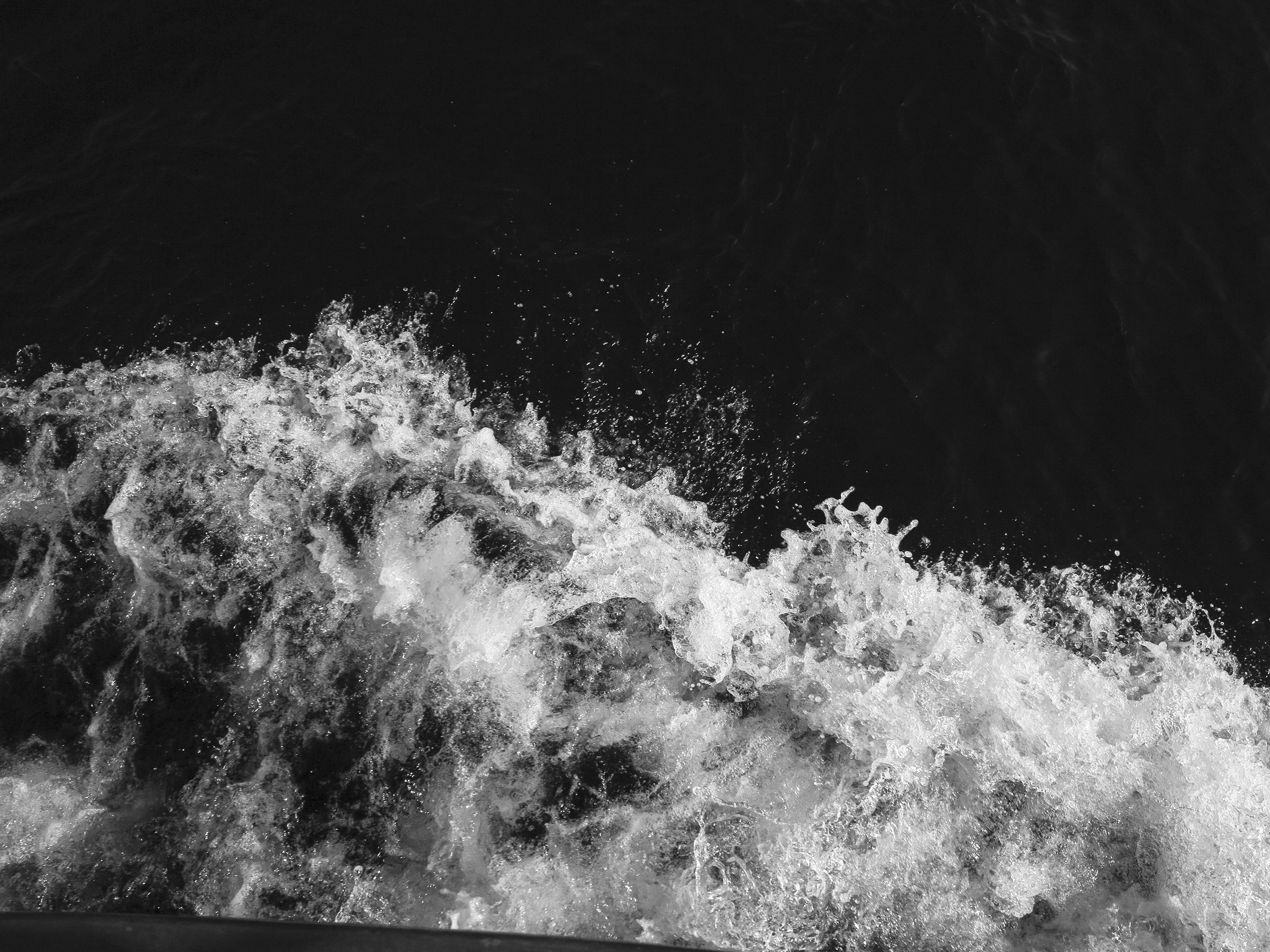Sometime around 970 ad, an anonymous scribe compiled in manuscript an anthology of Anglo-Saxon poetry that—when donated to the newly consecrated Exeter Cathedral a century later—came to be known as the Exeter Book. The book survived both fire and neglect. Among the most famous of its forty poems is The Seafarer, thought to be the work of at least two and possibly as many as four different poets. “The seafarer is alone on an empty and threatening ocean, his scant company the birds that the winter weather is soon to cast up,” poet Matthew Hollis writes in the foreword to his new translation. “And not just alone, but something far more punishing still: he is cast out.” In 2013, The Sea issue of Lapham’s Quarterly excerpted the first 65 of the poem’s 124 lines, as translated by Kevin Crossley-Holland. The same lines, as translated by Matthew Hollis, appear here. In his translation, Hollis seeks to make audible to twenty-first-century readers of this tenth-century poem “the spirit-music of land and wind and sea.”
Come, lean in for this song of myself.
Bear with me these tides of telling.
Days without dawn, nights of no end,
the oceans upturning. I cannot calm
the surge within; I cannot stop the wave
from breaking: lost to the lookout,
watchful at prow, my keel-hand
shaking in the spill; driven too much
toward rocks. Cold to my cage,
my feet unfound, these bones a scaffold of frost;
then the starvation inside: mere-weary to core,
more worry than care.
Whoever settles
their days on land will never know the wintered waste,
the sheer alone, the friendless furrow,
cloaks of icicle, hail flown—
where nothing resounds, no stroke or beat,
but a hammer-sung sea, its weld of waves.
Swan song, sometimes, a whooper’s wail,
the gannets’ row—these for company, or the curlew
trying out its name—but nothing like the mirth of men:
gull-cry where once there was mead hall.
Storm there on stone. Storm there on stone.
Alone the ice-tipped terns answer, and, more
than once, an eagle out of ether, salt-
winged and sodden. But none like a friend.
And so
little they believe, who, cupped in life,
in the cradle of towns, washed
with wine, outlying unknown,
how worn in my seaway I remain.
Enfolding dark. Snow from the north.
Hail like the arrows of the earth,
till corn itself grows cold.
And so
how is it that the heart pulls harder:
draws me deeper onto towering seas;
commands me out to salt-break;
to go further in as I go further out;
guided by this spirit-guest, this unhoused host—
as if it alone held maps for where I’m going?
And so
where is a man on earth more self-aware,
more gifted or more fleet in youth,
or in his acts so sure, or with such watchful master,
that he embarks upon his journey without care
for what his true Master may confer.
No harp does he hear within, no dream of rings-received,
no wife with whom to warm, no hope on earth;
no rhythm to his mind but the pulsing sea,
a mark that no salt can scrub free.
Wood takes blossom, boroughs bloom,
meadows burden, spring hastens;
the cuckoo, that ward of summer,
unlocks a call from its chest-hoard:
Yu home. Yu home.
Each propels the quick and the driven,
those ready to journey, those who are given
to ocean paths on which they must one day depart;
how can landmen in their comfort know
the exile into which the oceaned go?
And so
my mood turns with the maul,
escapes, a moment, its locker of bones
to seek a threshold to the whale-world,
out on its tide and in again,
restless and keen:
lone-flyer,
soloist on the whale-road,
beyond the chorus of waters.
From The Seafarer, translated by Matthew Hollis, with photographs by Norman McBeath. Copyright ©2024 by Matthew Hollis and Norman McBeath. Published by Hazel Press. Reprinted by permission of the author and Hazel Press.
